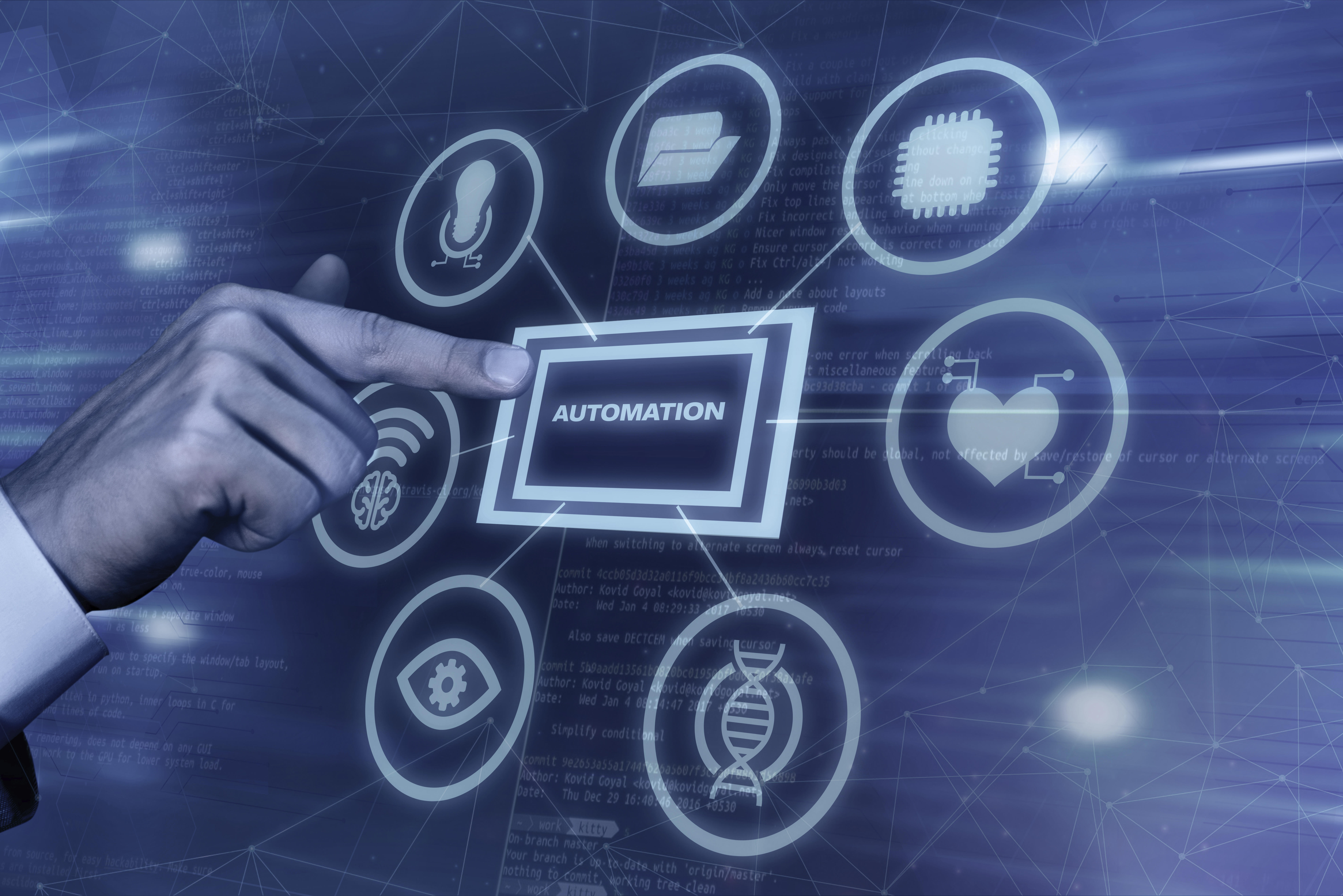AI Learning Path for 2025: Learn Smarter, Faster, Better
Artificial Intelligence is no longer a distant vision—it’s a powerful force shaping how we live, learn, and work every day. For students, developing AI skills early offers a gateway to future success in a world increasingly driven by intelligent systems. Whether you're just beginning to explore what AI is or ready to dive into hands-on projects, a well-structured AI Learning Path provides the guidance and tools needed to thrive.
With the right resources, students can build foundational knowledge, earn relevant certifications, and gradually progress toward high-impact roles in AI-driven industries. This pathway not only supports academic growth but also prepares learners for a competitive, evolving workforce.
Why Students Should Embrace AI Today
AI is seamlessly integrated into daily life. From voice assistants like Siri and Alexa to personalized recommendations on streaming platforms, students are already interacting with AI—often without realizing it. Introducing AI concepts at an early stage fosters logical thinking, creativity, and essential problem-solving skills. These capabilities are not only relevant to STEM fields but also increasingly valuable across all disciplines.
Following a dedicated AI Learning Path empowers students to think critically, innovate responsibly, and adapt to future challenges. It aligns with global educational trends that emphasize digital literacy and equips learners to meet the demands of emerging careers in data science, robotics, automation, and beyond.
Early exposure to AI enriches academic performance and cultivates the mindset needed to address real-world issues. It also builds ethical awareness—an essential trait in the responsible development and application of intelligent technologies.
Paving the Way to an AI Career
As educational institutions begin integrating AI modules into the curriculum, students gain the opportunity to prepare for an Artificial Intelligence Career Path that spans diverse sectors, from healthcare and environmental science to business and education. This career path isn't limited to coding or data analysis—it includes interdisciplinary roles where AI enhances decision-making, efficiency, and innovation.
By starting now, students can shape their futures in industries where AI will continue to play a transformative role. Whether pursuing traditional tech roles or applying AI in non-tech domains, a clear and supported Artificial Intelligence Career Path ensures learners are well-equipped for tomorrow’s opportunities.
Explore how AI careers can evolve for students here: Student AI Career Opportunities
Understanding the Core of AI: Foundations for Beginners
Before diving into advanced AI courses, students should understand the building blocks of artificial intelligence. This involves learning what AI is, how it works, and how it's applied in the real world. Key topics include:
- The definition and importance of AI in society
- How algorithms and models function
- The role of data in training AI systems
- Key areas of AI: machine learning, natural language processing, and computer vision
This foundational understanding helps students build a mental model of AI, empowering them to grasp more complex topics later. Interactive lessons, visual content, gamified quizzes, and beginner videos help break down these core ideas in a way that is fun, engaging, and age-appropriate. Students should be introduced to concepts like ethical AI, data bias, and real-world case studies to help them understand both the power and responsibility that come with AI.
Check out our beginner-friendly explainer: AI Basics for Students
Step-by-Step AI Learning Roadmap for Students
1. Get Familiar with AI Concepts
Kick off with short videos, simple readings, and visual diagrams that break down AI fundamentals. Explore terms like algorithm, model, training, and inference in fun and digestible formats.
2. Take Student-Focused AI Courses
Beginner-level AI courses tailored for students offer interactive learning without overwhelming jargon. These programs often use storytelling, real-world examples, and animated tutorials to keep young learners engaged. Some great starting points include:
- Introduction to AI for Students
- Basics of Machine Learning
- AI & Robotics Fundamentals
Browse student AI courses here: AI Courses for Young Learners
3. Practice Using Kid-Friendly AI Tools
Learning AI doesn't require advanced coding skills. Several tools are designed with students in mind to help them train models or build simple applications:
- ScratchML – Drag-and-drop visual coding for AI experiments
- Google Teachable Machine – Create basic AI using images, sounds, or poses
- MIT App Inventor – Build mobile apps with AI-powered features
Explore tools: AI Tools for Students
4. Build Fun and Practical AI Projects
Applying AI knowledge through small projects boosts retention and builds confidence. Students can try:
- Creating chatbots that answer questions
- Building a facial recognition game
- Designing quiz apps with adaptive learning
These projects not only make learning fun but also allow students to showcase their progress.
Find project ideas here: AI Projects for Students
5. Gain Recognition with Certifications
As students complete each stage of their learning, they should pursue AI certificates to validate their skills. Many programs offer digital badges, certificates, or even micro-credentials to help students stand out in academic or internship applications.
See certifications: AI Certificates for Students
Specialize and Grow: Next Steps for Ambitious Students
Once students feel comfortable with the fundamentals of artificial intelligence, the next phase is specialization. This stage helps learners go beyond theory and apply AI in real-world contexts that align with their personal passions and academic interests. By choosing a specialization, students develop deeper expertise in specific domains where AI tools and models are already having significant impact.
For example, in AI in Healthcare, students can explore how machine learning is used to detect diseases, support diagnostics, and personalize treatment plans. Courses and projects in this area teach students to work with health data, medical imaging, and predictive analytics—all with an ethical framework that emphasizes patient privacy and fairness.
In the field of AI for Environmental Conservation, students can learn how AI helps monitor climate change, manage natural resources, and predict weather patterns. Satellite image analysis, AI-based pollution tracking, and wildlife population modeling are all exciting project areas that merge technology with sustainability goals.
The creative field offers another inspiring path: AI in Creative Arts and Music. Students can use generative AI models to compose original music, create digital art, or write poetry. AI tools like DALL·E, Jukebox, and MuseNet empower students to merge logic with imagination, pushing the boundaries of what’s possible.
For tech-savvy students, AI in Gaming and Virtual Reality is a dynamic frontier. By learning how AI drives NPC behavior, game recommendation systems, and immersive experiences, students can dive into a blend of coding, storytelling, and player psychology. Projects in this domain can include creating personalized gaming bots, AI-controlled environments, or predictive player analytics.
Specializing gives students clarity, direction, and a strong portfolio. It also prepares them for internships, scholarships, and competitive university programs in AI-related fields.
Plan your specialization here: AI Specializations for Students
Continuous Learning: Resources to Support Your AI Journey
Mastering AI skills is a journey—not a one-time task. To keep growing, students need access to dynamic learning resources that evolve with their skills. At LearnArtificialIntelligence.ai, we’ve compiled a wide range of tools and materials specifically tailored for student learners who want to explore, experiment, and expand their understanding.
Start with AI glossaries designed for young learners. These simplify complex terminology like neural networks, supervised learning, and model training into student-friendly language, making advanced concepts more approachable.
Next, check out our AI learning maps customized for student goals. These roadmaps are organized by experience level and interest area—such as AI for arts, science, or business—and guide learners step by step through courses, projects, and certifications.
We also offer interactive tutorials and workshops, where students can participate in instructor-led sessions, mini-hackathons, or recorded demos that teach how to build real AI tools using platforms like ScratchML or Teachable Machine. These sessions help cement theoretical knowledge through practical use.
And don’t miss out on AI competitions and hackathons specifically for youth. These events challenge students to build creative AI solutions under time pressure while collaborating with peers. Whether you’re interested in climate tech, education apps, or AI storytelling, hackathons foster innovation, leadership, and teamwork.
Access these resources: AI Learning Materials for Students
Inspiring Reads & Insights for Student AI Enthusiasts
Sometimes all it takes to stay motivated is the right story. That’s why we created the Student AI Blog Collection, filled with real-life insights, tips, and features tailored for young AI learners. These articles go beyond technical tutorials—they highlight personal journeys, school-based success stories, and advice from students making an impact with AI.
One of our most popular reads is “How Students Can Start Building AI Skills”, which breaks down practical, achievable steps for middle school and high school students to enter the world of AI with confidence. From setting up your first AI tool to choosing your first project, it’s packed with inspiration.
Another reader favorite is “Top Emerging AI Fields for Young Innovators”. This blog covers the fast-changing world of AI-driven industries—from AI in agriculture and climate change to human-AI interaction design. It helps students identify future opportunities and match their skills to global challenges.
We also offer practical advice with blogs like “Balancing School and AI Learning”, which guides busy students on how to integrate AI practice into their schedule, manage screen time, and avoid burnout. These blogs make AI education relatable and manageable.
Each blog includes recommendations, project links, and course suggestions, ensuring every visit helps move students closer to their learning goals.
Read more: Student AI Blog Collection
Final Word: Your AI Journey Begins Now
Taking the first step into the world of artificial intelligence is one of the most rewarding decisions a student can make. With the right guidance, tools, and motivation, students can transition from AI learners to AI leaders—regardless of age or background.
The key to success lies in continuous curiosity. Whether you're building your first chatbot or exploring ethical dilemmas in machine learning, every step deepens your understanding and builds confidence. Along the way, your ability to think critically, collaborate effectively, and innovate with purpose will grow.
At LearnArtificialIntelligence.ai, our mission is to make AI accessible for students everywhere. From beginner courses and tutorials to advanced project ideas and career guidance, we support your entire learning journey. Start small, stay consistent, and celebrate every breakthrough.
Your future with AI doesn’t begin in a lab—it begins right here.
Let us help you shape it: Explore AI Courses for Students | Browse Student Resources | Discover Student Career Paths









